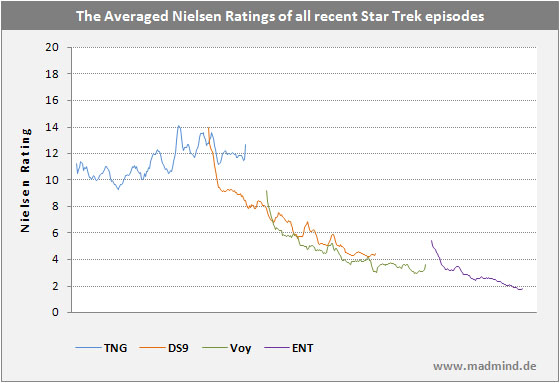Star Trek is so expansive, it means different things to different people. To some it's about Kirk, Spock, and McCoy. To others it's about exploring space and sci-fi gadgetry. To others it's about a specific time period in the Trek chronology, specific alien races.
To me, it's not about any of that. It's about using these stories to explore the human condition and examine moral, ethical, and cultural issues. Whether it's in this timeline or that, whether it's bright and colorful or dark and moody; whether it's got Klingons with ridges, no ridges, hair or no hair; whether it's consistent with cardboard sets from the 60s or not; whether it's a war story or a story of scientific discovery is not important to me, and clearly, it's not important to many other Trek fans.
I know you say that to be respectful of other's people opinion. Which is obviously fair. After all, what we like and don't like is a matter of opinion. But I don't think it's a matter of opinion what Star Trek was about. In the sense that great care was taken by talented writers and people to write the various Star Trek stories. To make Star Trek what it is.
It's not a matter of opinion that all Star Trek series (TOS, TNG, DS9, Voyager and Enterprise) involved stories to explore the human condition, examine moral, ethical and moral issues, etc. It was intended that way by very talented and inspired people. It's clear the various Star Trek series where written to include the exploration of humanity through various sci-fi action-adventures. The show also involved actions, space battles, new technologies, impact of future technologies and the development of science, visions for the future, humor, topicality, etc, etc.
It truly takes great writers who have knowledge, love for sci-fi and things to say about humanity, our societies and visions of the future, to write series like Star Trek and Doctor Who.
Personally, I think fans who want to dumb down Star Trek into becomine only a war show after war show, or becoming like BSG or GoT, are not watching the same series as it was intended by the writers of Star Trek shows since TOS. I love GoT and Spartacus. But there's something special, solid and very unique about Star Trek. Star Trek is a trend setter and has become one of the most recognizable and influential sci-fi series of all time.
I find people on these forums often views the development of Star Trek as something mechanical (write about this or write about that, don't write about this, don't write about that, the next Star Trek must become this or that) when it's truly the talent of writers and the whole production team that made Star Trek what it is. There's no need to find a magical formula. Just a need to choose inspired and talented sci-fi writers (and a whole production team).
Writers who loves Star Trek for what it is not what it is not.
When you truly have talented sci-fi writers (people with knowledge,
love for sci-fi, things to say about: humanity, our societies, visions of the future, the impact of technologies and development of science, etc) they can always write great stories encompassing what Star Trek is all about. The way Star Trek (and to some degree similar show like Doctor Who, Stargate, The Orville) is set up, you can write stories about practically everything. Whether it's war, incest, impact of the internet, our fears, heroism, transgender, injustice, politics or the death penalty.

